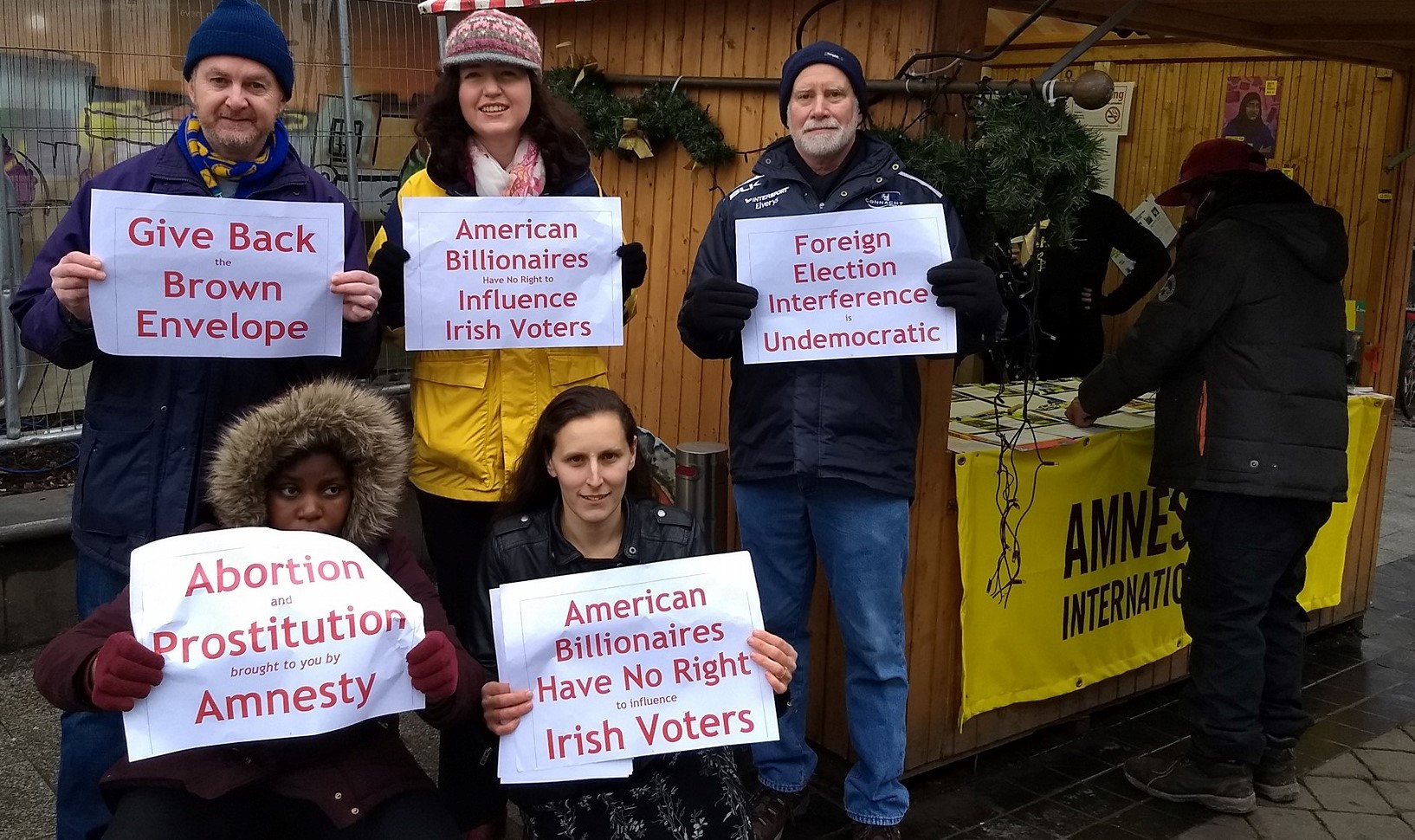
The move was welcomed by Savethe8th, a group campaigning for a NO vote in the forthcoming referendum. Their spokeswoman Niamh UiBhriain said: “The decision from the ICGP not to endorse a YES vote in the referendum on repeal is significant and welcome. In recent days and weeks we have seen increasing concern from doctors, both those who oppose this proposal on principle, and the significant number who see it as simply unworkable”.
She added: “For months now, supporters of Repeal have tried to present medical opinions on the referendum as uniform. They are not. In the coming months, we are glad that those many doctors with serious concerns about the Governments proposal will have the support of the ICGP if they wish to make their views known. This is a good day for those of us who want a fair and open debate”.
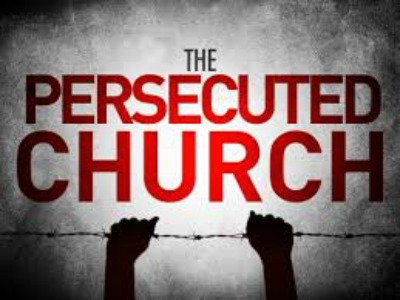
Three years after ISIS militants issued an ultimatum to Christians to “Convert, leave or die”, throngs of families have returned to their ancestral lands in the Nineveh plains as houses are rebuilt and communities reconstituted. In Qaraqosh, Iraq’s largest Christian city, shops and restaurants are open, children go to school, busloads full of students head to Mosul daily for their studies at Mosul University, and increasing numbers of Christians are returning to the Assyrian city more commonly known as Baghdeda. In partnership with the charity, Open Doors, locals have repaired and rebuilt hundreds of homes. “The people are happy,” says local pastor Fr George. “…They prefer to be here, to be back home.” And the people come not only from elsewhere in Iraq: “We also saw refugees returning from France, Jordan, Lebanon and even Australia. I will personally work to convince more of those who left the country to come back.” So far, renovations have concentrated on the more easily repairable houses near the centre of the city. It will take a lot more time and money to rebuild the homes that were completely burned down or destroyed, and to continue the works to the outer edges of the city. But, a start has been made and life is returning and hope has once more sprung like a phoenix rising from the ashes.

While the bill is generally built around removing barriers to schools admission, the spokesman said the Minister for Education Richard Bruton had been reflecting on how best to allow children from an Irish-speaking background gain access to Irish-medium schools in a fair, inclusive and transparent manner. Cearta Oideachais, which represents Irish-speaking families, argues Gaelscoileanna should be able to continue to give priority to Irish-speaking pupils in order to protect the educational rights of this small minority of children. “Unlike members of the Church of Ireland or the Catholic Church seeking to establish their right to priority enrolment in a faith based school, children raised through Irish do not have the equivalent of a baptism certificate to prove that they are native speakers,” it stated in a submission on the bill.
“Our primary concern is the right of our children – members of Ireland’s indigenous linguistic minority and native speakers of the first national language – to receive an education in their first language, and to achieve full working literacy and competency in that language.” Using an argument that is rarely heard in relation to faith-based prioritising of schools admissions, the group said children who have Irish as a first language “scaffold” other children’s language learning in the classroom.
“In Irish-medium schools, they are therefore an important resource for peers for whom Irish is not the language of the home,” it stated.

A leading GP has echoed the reservations of the Irish College of General Practitioners to Government plans for a GP-led abortion regime, calling the plans ‘unworkable’ for both doctors and patients. “The fact is that, whatever the view of an individual GP on the abortion issue, we simply are not currently equipped as a profession to cope with what is being proposed by Simon Harris. We lack the facilities, the training, the time, and yes, the resources,” wrote General Practitioner, Dr Máire Neasta Nic Gearailt, in an op-ed in the Irish Examiner this week. Describing how the proposal is meant to work in practice, Dr Nic Gearailt said that a doctor must first satisfy himself that a woman has the right under the new law to have an abortion. Then, the doctor must administer two miscarriage-inducing pills over several days. “The woman will experience cramping and heavy bleeding before the baby is expelled. How are GPs, operating in busy and crowded practises with common waiting rooms, expected to medically supervise this procedure? Neither are most GP surgeries the ideal place to deal with any emergencies that might arise from any adverse sequelae from taking these tablets,” she wrote.
Last week, Dr Emmet Kerin, President of the National Association of General Practitioners, which represents some 2,000 GPs said: “for the Minister to suggest that our profession should lead out an abortion service without consultation with our member GPs is an affront to our profession and could pose yet another strain on the provision of general practice healthcare services”.
Dr Nic Gearailt echoed this objection saying GPs have not been asked their view on this law, in either an opinion poll or by the Government, and called it “an extraordinary oversight that should alarm the public”.
“The Government says it is committed to the welfare of women, but it has proposed a law that is simply unworkable for doctor and patient alike”.
Quite apart from the myriad problems with attempting to administer the Government’s plans, she said a great number of GPs would simply refuse to commit abortions anyway. “Then there is the fact that a great many of us, myself included, simply could not in good conscience administer a drug to a healthy young woman with a healthy pregnancy that would cause her to lose her child. I did not study medicine so that I could end life, and I know that I am not alone in this.” She added: “Amongst colleagues, the assumption has been that this Government is simply so eager to get the pro-choice lobby off it’s back that it has given them everything they wanted without considering the consequences. It is hard to look at what has been proposed and come to any other conclusion.”

Dr Spelman concluded that “it would have been more prudent of Simon Harris if he had engaged with the various GP bodies before he raised expectations that MTOP would be a GP-led service in Ireland”.

A medical doctor has taken issue with a poll published in many newspapers claiming overwhelming support among GPs for the Govt’s proposal for a GP-led abortion regime. According to Dr Theresa Boyle, not only was the poll methodology “subject to bias rendering it dangerously unrepresentative”, but the result was also “completely inconsistent with the most recent positions taken by doctor representative groups”. As evidence she cited that in the run up to the 2013 abortion act that enabled abortion on the grounds of suicide, “every representative group for doctors emphatically rejected the notion that suicidality should ever be used as an indication for pregnancy termination”. This included a statement on behalf of psychiatrists that an overwhelming 90% of respondents signed that legislation to allow for abortion as a treatment for the threat of suicide had no basis in medical evidence. Similar objections were also raised by the Irish Medical Organisation, the Irish College of GPs, and the Institute of Obstetricians and Gynaecologists. “The three doctor groups who all disagreed with using suicidality as an indication for terminating an unborn life are hardly likely to agree with abortion for any indication up to 12 weeks”, she said.
Dr Boyle also said this should not be surprising “since doctors generally don’t consider killing one of their patients to relieve the distress of another patient as one of their roles in society”, and she pointed to the deep unwillingness among doctors internationally to perform abortions. “This is equally true in countries which have legalised abortion: it is a deeply unpopular career and very few doctors want to perform abortions eg 7% of obsetrican-gynaecologists in the US perform even rare abortions in their practice”.
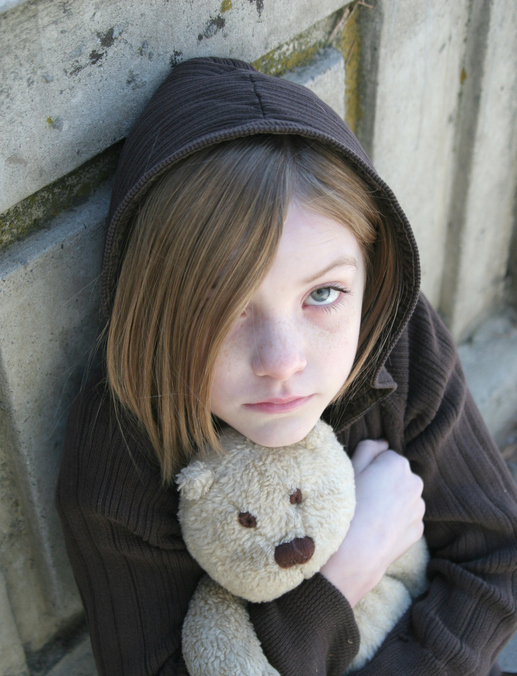
Leading experts have told an Oireachtas committee they are “unequivocally opposed” to Government plans to set the digital age of consent at 13, and warned that the State faces “a tsunami” of cases of child abuse and exploitation over the internet.
Dr Mary Aiken, an adviser to the European Cyber Crime Centre at Europol, addressed the Oireachtas Joint Committee on Children and Youth Affairs on Tuesday alongside Prof Barry O’Sullivan, who is director of the Insight Centre for Data Analytics at UCC.
The committee meeting comes weeks after Dublin man Matthew Horan was sentenced to nine and a half years in prison for blackmailing young girls into sending him sexually graphic photos and videos.
After hearing of the “pernicious effect” that social media can have on the self-esteem of children, the committee also discussed the digital age of consent, whereby children may use many websites and social media platforms without requiring the consent of their parents. While the Government’s Data Protection Bill 2018 would enshrine an Irish digital age of consent at 13 years old, both experts said they were “unequivocally opposed” to the proposal.
“You can’t buy a dog licence at 13, but we could have a situation in May where kids can sign up to a system and give a social media company access to their information, including the likes of family photos,” said Prof O’Sullivan. “Companies can collect, record and share a child’s home and school address, their location, their date of birth, their photos, phone number, their likes and dislikes, who they know, and the content of their conversations, including messages sent privately. Not only does this present a security risk to the individual child but, by association, it also presents risk to the family.” Both experts said an optimum digital age of consent would be 16-years-old, and that “robust age verification” online was “critical”.
A host of children’s rights organisations previously backed setting the age at the minimum possible for EU law, 13 years of age, including the Ombudsman for Children, Dr Niall Muldoon, the special rapporteur for child protection, Dr Geoffrey Shannon, the Children’s Rights Alliance and the youth information website SpunOut.ie.
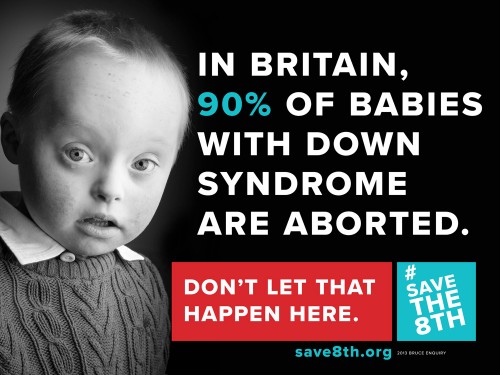
The rate of Down’s syndrome abortions in the UK and Europe is akin to Nazi eugenics, the Church of England’s General Synod has heard. Speaking during a debate on pre-natal testing, Andrew Gray, a lay member of Synod, said: “We live in a society that claims to value and appreciate those who are different and those who have a disability and yet what we say and do are two different things. In countries like Iceland Down’s Syndrome has been virtually eliminated”. He continued: “What we have is a very simple situation. The UK and Europe has begun to practice eugenics, by default, and without intent. This is not because of a state-led desire to remove those considered weak or sub-human – we don’t live in 1930s Germany, thank God. But while the reasons and the motivations are different, the outcome is the same. I refer to 1930s Germany with some caution because the Third Reich has a habit of being drawn into these debates, but quite frankly, with this one, there are some stark comparisons.”
Synod members unanimously passed a motion calling for the Government to ensure that “unbiased information” is given to expectant parents who are told their unborn child has Down’s Syndrome. The Synod raised concerns that women were being put under pressure to abort such babies and urged doctors not to frame such a pre-natal test result as “bad news”. Earlier in the week the actress Sally Phillips, who has a son with Down’s Syndrome, said women were “over and over told by implication but also overtly that they will not be able to cope with a Down’s Syndrome baby”. She told a small group of Synod members that a pregnant friend had been “rung nine times during her pregnancy to be offered and offered and offered a termination in case she changed her mind”.
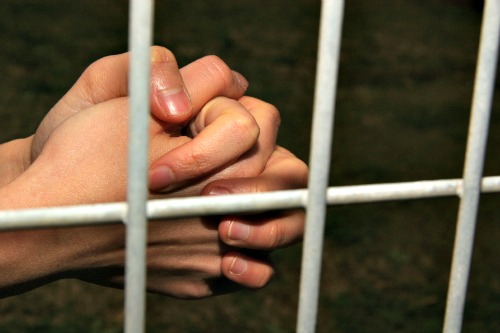
Numerous Churches in Australia have joined together to call for a Religious Freedom Act, similar to a charter of rights, that would enshrine in law and spell out in detail the human right to religious freedom of faith communities. “We’ve never needed to protect religious freedom before, but now we do,” said author Patrick Parkinson, a professor of law at the University of Sydney.
Essential to the proposed law, submitted to a Government review of religious freedom, is the right for church-run organisations – including schools and aged care homes – to hire and fire staff in accordance with their values. That would extend to employees who enter into a same-sex marriage following its legalisation late last year. The proposal described that freedom as “an existential issue for faith communities of all kinds”, saying if a Christian school cannot select its employees then it “will be indistinguishable from the state school next door”, just as Christian health facilities would “quickly lose their character”.
The churches have also asked for: changes to the Marriage Act to ensure facilities such as school chapels cannot be used for same-sex weddings against the wishes of the diocese, even if the school principal gives permission; the right for parents to remove their children from public school programs that don’t accord with their values; and the creation of a “national religious freedom commissioner” within the Australian Human Rights Commission.
While the issue of religious freedom was sparked by the legalisation of same-sex marriage, the churches said the issue was much broader, and it was a “completely false dichotomy” to claim religious rights were in conflict with LGBTI rights.
“The new frontier is gender identity,” the churches argued, deeming it a “new and popular” cause. It was also about “the normalisation of a particular, boundary-free attitude to consensual sexual conduct that conflicts with the moral values of a great many Australian parents”.
The Government inquiry into religious freedom was told extra protections for people of faith were necessary in an increasingly secular era in which there is “hatred against people of faith” and where “there is no longer a consensus that religious freedom matters”. Professor Parkinson said a federal law to codify religious freedom “may be rarely invoked” against the states and territories, but would have a “more educative effect” as to the legal boundaries.
